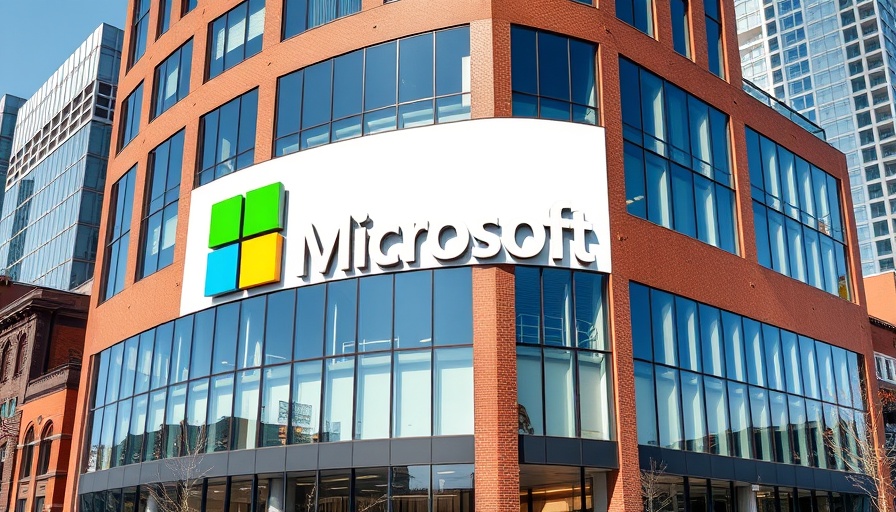
Community Voices Matter: A Win for Citizen Engagement
In a significant turn of events, Microsoft has decided to withdraw its plans for a 244-acre data center in Caledonia, Wisconsin, primarily due to strong local opposition. This decision was not made lightly; it was the culmination of community efforts, highlighted by a petition that garnered over 2,000 signatures, demonstrating the power of resident engagement. Prescott Balch, a local resident, expressed his joy upon hearing the news, stating it was a clear indication that residents’ voices can influence even the largest corporations. “Our arguments held water and ultimately convinced a large corporation to back off,” he noted. This instance showcases how grassroots organizing can alter the course of corporate plans that seem set in stone.
The Importance of Harmonizing Development with Community Values
Microsoft's decision to scrap the data center speaks volumes about the importance of aligning development projects with community priorities. While Caledonia's Village President, Tom Weatherston, expressed disappointment, he also acknowledged that Microsoft was largely responsive to the community's concerns. “This wasn’t a decision made because of anything to do with the site itself — it was really about Microsoft being a good neighbor,” Weatherston explained. This sets a precedent for other tech giants to consider local sentiments seriously before pushing forward with developments.
A Broader Perspective on Data Center Development
Data centers are becoming the backbone of technological expansion, particularly with the growing demands of artificial intelligence and cloud computing. Globally, companies like Google and Amazon are racing to build data centers, with projections of hundreds of jobs being created along with significant local revenue. However, the case of Microsoft in Caledonia reflects a critical intersection: the balance between corporate expansion and community health and welfare. Residents' concerns around potential environmental impacts—both visual and ecological—merit serious consideration as communities navigate the tech development landscape.
Learning from Other Controversial Projects
Caledonia's experience is not unique. A recent incident in Oldham County, Kentucky, finds parallels in a similar grassroots uprising against a proposed $6 billion data center project. Local opposition became so fervent that it prompted the developers to withdraw their plans, highlighting yet again how organized resistance can influence large-scale projects. In both cases, communities rallied to protect their neighborhoods, emphasizing the importance of local governance in major development decisions.
Future Implications: Will Tech Giants Rethink Their Approach?
As Microsoft and other tech giants like OpenAI and Meta strive to expand their infrastructure, the ongoing pushback from local communities may lead to a necessary rethinking of strategies. Companies might find advantage in pre-engagement efforts with residents to discuss the local implications of their developments. In an era defined by rapid technological change, fostering a dialogue between corporations and communities can lead to more sustainable and accepted growth plans.
Moving Forward: What Can Communities Do?
Residents seeking to influence development decisions should harness social media and community gatherings for collective action. Effective communication strategies can amplify their voices, as seen in Caledonia. By organizing and presenting a united front, communities can set the tone for corporate engagement from the outset, ensuring that development aligns with their values and priorities.
This development saga not only highlights the power of community engagement but also poses crucial questions about the future of localized tech development. Residents must continue to play an active role in shaping the growth narrative, understanding their rights and the value of collective advocacy.
 Add Row
Add Row  Add
Add 




Write A Comment